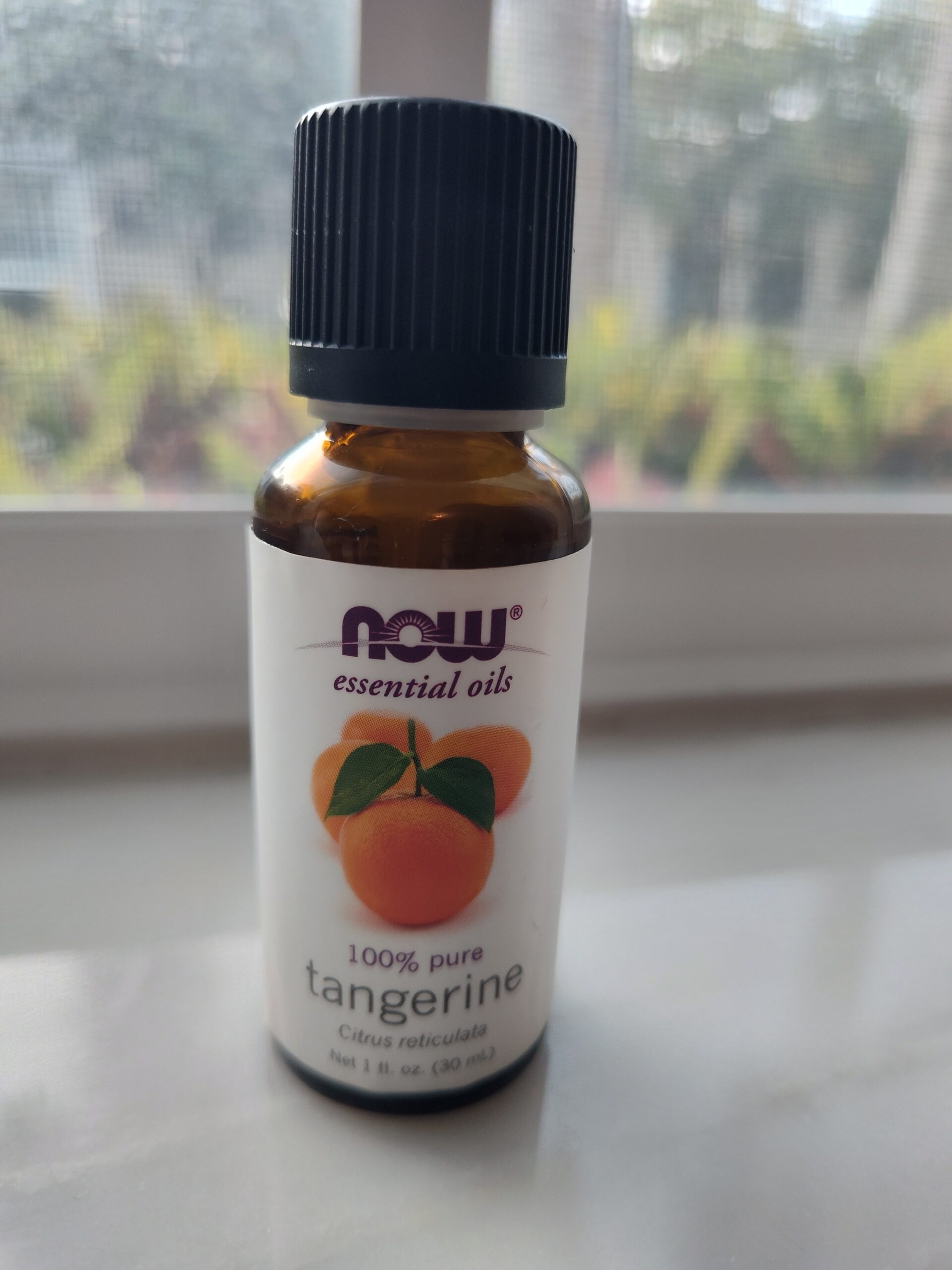Image Credit: April Heath LMT
Your Stress Relief Toolkit: Tangerine Aromatherapy
By April Heath LMT
Have you ever wondered why the most common essential oils used in spas are lavender, eucalyptus, peppermint, and sweet orange? They’re popular scents, but they’re also economical enough that most spas don’t even charge extra for them. While most people may not think about the difference between the scent of their laundry detergent and cold-pressed essential oils, we’re going to take a brief journey into the world of aromatherapy to discover nature’s healing properties.
Did you know that not all plants even produce essential oils? Plants like strawberry, lilac, honeysuckle, pineapple, pear, cherry, and banana do not produce essential oils. Products with these scents use synthetic fragrance oils, not actual essential oils. To put the potency of essential oils in context, 30 cups of strong herbal tea = 1 drop of essential oil.
In this first in a series on aromatherapy, I’ll cover tangerine.
Tangerine essential oil is an uplifting and refreshing scent, but it also has numerous potential health benefits. Extracted from the peels of tangerine fruits through a process of cold-pressing, this essential oil has been used for centuries in traditional medicine and holistic practices. In this article, we will explore the origins, uses, benefits, and precautions associated with tangerine essential oil in aromatherapy.
Tangerine essential oil originates from the Citrus reticulata tree, a member of the Rutaceae family. Native to East Asia, particularly China, tangerines have been cultivated for thousands of years for their juicy, flavorful fruits. The oil is extracted from the outer peel of the fruit, which is rich in aromatic compounds.
The extraction process involves cold-pressing the peel, which helps preserve the oil’s delicate fragrance and therapeutic properties. This method involves mechanically pressing the peel to release the oil without the use of heat or solvents, ensuring a high-quality end product.
Aromatherapy Uses
Tangerine essential oil is citrusy and sweet, which is both invigorating and calming. Here are some popular ways to incorporate it into your aromatherapy routine:
- Diffusion: Add a few drops of tangerine essential oil to an electric nebulizing diffuser to fill your space with its uplifting scent. Diffusing tangerine oil can help promote a positive atmosphere and improve mood.
- Topical Application: Dilute tangerine oil with a carrier oil like jojoba or cold-pressed sesame oil and apply it to the skin for a rejuvenating massage. This can help relax muscles and relieve tension.
- Inhalation: Inhaling the scent of tangerine oil directly from the bottle or by adding a drop to a tissue can provide a quick pick-me-up, especially during moments of stress or fatigue.
- Bath: Incorporate tangerine oil into your bath routine by adding a few drops to warm bathwater. This creates a soothing and uplifting bathing experience, promoting relaxation and mental clarity.
Beyond its delightful aroma, tangerine essential oil offers a range of potential health benefits when used in aromatherapy:
- Mood Enhancement: The uplifting scent brightens a heavy mood and alleviates symptoms of stress, anxiety, and depression. The aroma has an energizing effect on the mind, promoting feelings of joy and positivity.
- Stress Reduction: Inhaling the aroma of tangerine oil may help reduce stress and tension by calming the nervous system. Diffusing tangerine oil in the home or workplace can create a serene environment conducive to relaxation and productivity.
- Immune Support: The high concentration of antioxidants in tangerine essential oil may help support the immune system by neutralizing free radicals and reducing oxidative stress. Diffusing tangerine oil in the home can help purify the air and create a healthier indoor environment.
While tangerine essential oil offers numerous potential benefits, it’s essential to use it safely and responsibly:
TIP Don’t leave any essential oil in its bottle uncovered for prolonged periods of time, because all of them turn from liquid to gas (evaporate) at room temperature.
- Skin Sensitivity: Some individuals may experience skin sensitivity or allergic reactions when using tangerine oil topically. Always perform a patch test before applying diluted tangerine oil to a larger area of the skin, and discontinue use if irritation occurs.
- Phototoxicity: Like many citrus essential oils, tangerine oil contains compounds that can cause photosensitivity when applied to the skin and exposed to sunlight. Avoid direct sunlight or UV exposure for up to 12 hours after topical application to prevent skin irritation or burns.
- Purity and Quality: Ensure that you purchase high-quality, pure tangerine essential oil from reputable suppliers. Look for oils that are labeled as 100% pure and organic, with no synthetic additives or fillers.
- Pregnancy and Children: Pregnant or nursing women and young children should consult with a healthcare professional before using tangerine essential oil, as its safety in these populations has not been extensively studied.
Tangerine essential oil is a versatile and aromatic oil with numerous potential benefits for aromatherapy. Whether diffused, applied topically, or inhaled, its bright and uplifting scent can help promote a positive mood, reduce stress, and bolster the immune system. However, it’s essential to use it safely and responsibly, taking precautions to avoid skin irritation and sun sensitivity. By incorporating tangerine essential oil into your aromatherapy routine, you can enjoy its refreshing fragrance and potential therapeutic effects while enhancing your overall well-being.
Check back next week when I cover essential oils for grounding, stability and boosting serotonin release.
Which of the citrus oils do you like best? Post in the comments
Follow me on Instagram
Follow me on Facebook
#joyful
#StressRelief
#massagetherapy
#essentialoils
#aromatherapy

Be the First to Comment